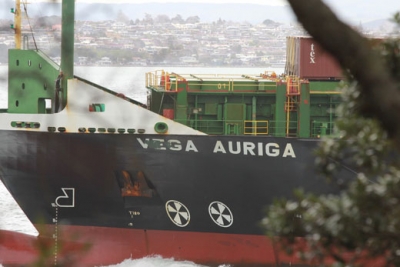Enforcing seafarer rights and the Vega Auriga saga

It is just over a year on from the Maritime Labour Convention (MLC) 2006 coming into force and if you were in any doubt over its effectiveness and impact the banning of the containership Vega Auriga from all Australian ports and its subsequent detention in New Zealand should be ample demonstration.
The Liberian-flagged Vega Auriga had been detained on three occasions since last July by the Australian Maritime Safety Authority (AMSA) for issues relating to seafarer welfare and maintenance of the vessel. These included improper payment of wages, inadequate living and working conditions.
In a statement on the barring of teh Vega Auriga AMSA noted that Australia was a signatory to the MLC and that it took its compliance responsibilities to all international conventions seriously. “Seafarer welfare is just as important as the proper maintenance of ship equipment, and an integral part of safe operations. A failure in either system could lead to serious accidents,” said Allan Schwartz, general manager of AMSA’s ship safety division.
Since then the Vega Auriga has sailed to New Zealand’s port of Tauranga where it was also detained by the authorities there. At this point charterer Mediterranean Shipping Co decided to offhire the vessel due to its sub-standard operations by its owners, which combined proper action by the authorities involved, had essentially made it useless to the charterers for the job they had hired it for.
This demonstrates that where authorities do apply the standards of MLC it really does have teeth and owners will not be able to run away from it, and there are plenty of places in the world where this will happen.
Meeting Hong Kong Shipowners Association (HKSOA) managing director Arthur Bowring last week, who has been very much involved with the development of MLC, he was clear on what he saw as “outstanding” progress of the convention. In terms of demonstrating its success he pointed to the number of MLC related deficiencies or detentions by Port State Control (PSC) that had been picked-up over the last year over issues such as hygiene and seafarer employment agreements.
As the convention gains further traction it can only be good for seafarers and the industry as a whole gradually forcing out those owners who exploit their crews through sub-standard operations.
HEADLINES
- Do shipping markets want Biden or Trump for the win?
- All 18 crew safe after fire on Japanese-owned tanker off Singapore
- Singapore launching $44m co-investment initiative for maritime tech start-ups
- Cosco debuts Global Shipping Industry Chain Cooperation Initiative
- US warns of more shipping sanctions
- China continues seaport consolidation as Dalian offer goes unconditional